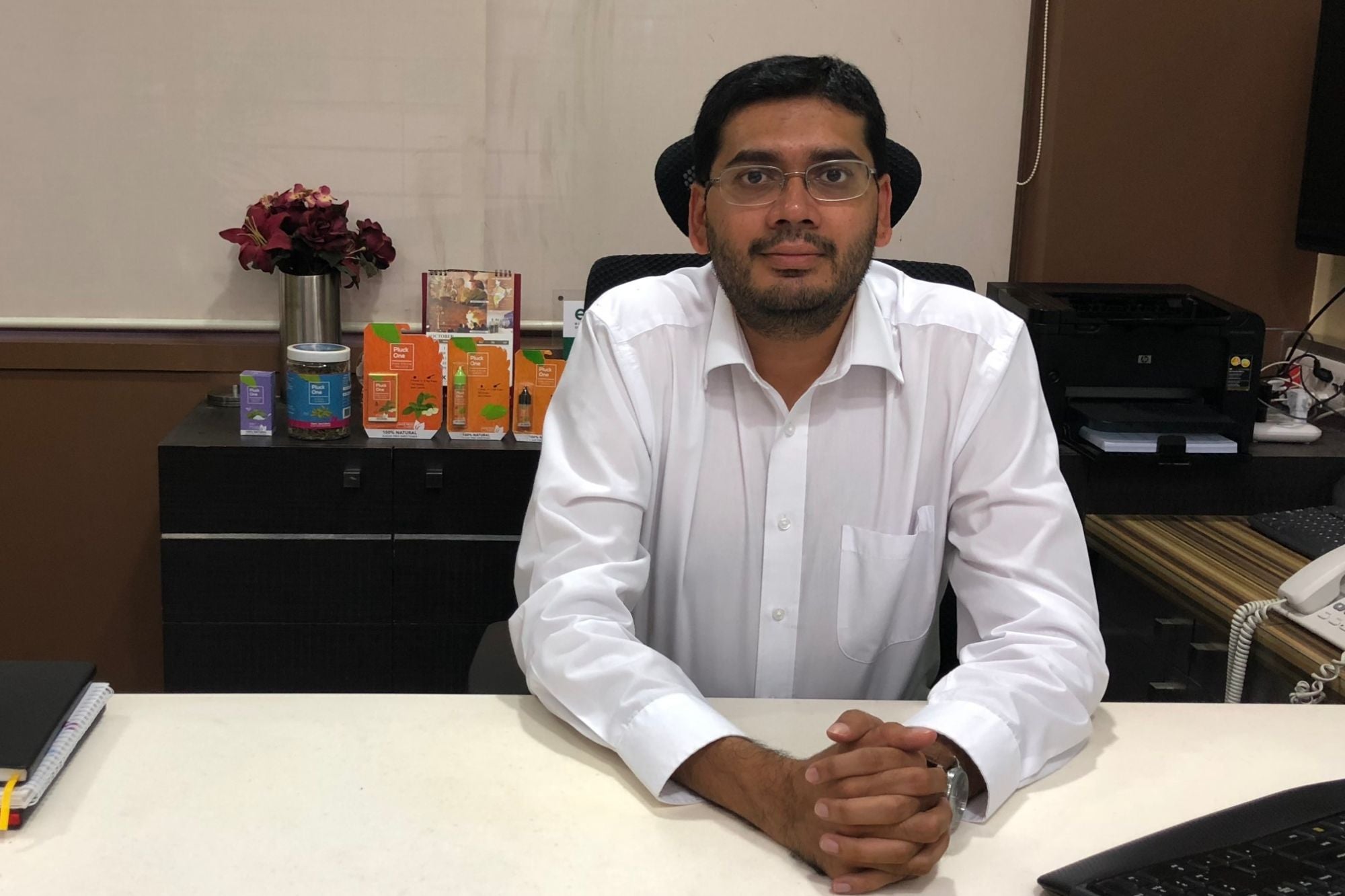How this Lawyer-turned-farmer Found His Calling More and more professionals are leaving behind their jobs to turn to farming, but it's not the farming that you imagine
You're reading Entrepreneur India, an international franchise of Entrepreneur Media.

Indian agriculture has seen a change over the years. From being an industry which was looked at being kept aside for rural India to today, technology playing a role in bringing forward the concept of urban farming for today's millennials. More and more professionals are leaving behind their jobs to turn to farming, but it's not the farming that you imagine. They are implementing technology and turning farming into a sector equipped with modern day facilities.
This is also the story of Bhoomin Badani, co-founder of Pluck One. Badani, formerly a lawyer, turned into a farmer because of his interest in agriculture. Today, with Pluck One he produces Stevia Leaves and aims to reach out to the Indian masses with an alternative for sugar.
Entrepreneur India spoke to Badani as he shared his story from lawyer to farmer and that too with the little known Stevia Leaves in India.
From Lawyer to Urban Farmer
Having always been an agrienthusiast, Badani often used to travel to South Africa to understand and learn more about the new advancements in agriculture. That's where he got intrigued with concepts like hydrophonic farming. But once he started working on it, he realized agriculture wasn't something he could pursue as part time. He left his legal job and turned to farming.
He began his research and identified crops that could work out well in India. This research brought him to learn about stevia leaves. "Back then, Stevia was not even legal in India. It was only legalized by the end of 2016 and after that I decided to start farming the same in India," he said.
Stevia is a better alternative to sugar and has recently struck the right chord with many Indians. Currently, its consumption is restricted to 0.2 per cent of the sweetener industry. However, Badani is sure of its future. "It can be used in 26 different industries and as its shelf life is long, it works in our favour," he said.
While he started off with a trial cultivation in 25 acres, he plans to scale up the operations to 300-400 acres. One would believe that finding land in Mumbai would be a difficult task but Badani found an alternative. "Close to Mumbai, there are families/HNIs who have land vacant and also have the fear of encroachment. They rent out these lands to us and they get yearly returns on these lands. By doing this, the scalability becomes faster," he said.
Challenges
Badani came across multiple challenges as he turned a farmer. For starters, he's quick to say, "Looking at farming from an urban perspective just sounds fancy." But he soon realized, you can't make excel sheets and plan everything. He faced major setbacks – be it the Mumbai rains or handling the labourers. "I never believed communication could be a challenge for me, but it was one initially," he said.
Sharing words of advice to other entrepreneurs, he said it's important to understand the parameters and gain a lot of perspective by researching on farming.
Reaching Out to the Right Audience
He categorizes the audience into two – the huge diabetic population where everyone's looking out for an alternative for sugar and the millennials or youngsters who are proactively cutting out sugar. While they have a presence in 300 stores in Mumbai, they are planning to reach out to customers in Delhi too. "Apart from that social media like Facebook and Instagram work great for us," he said.











